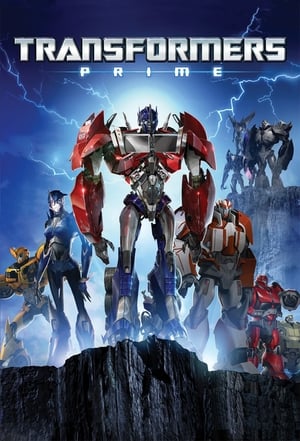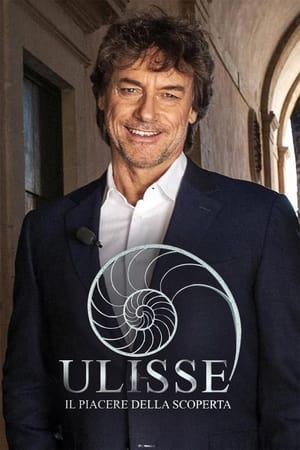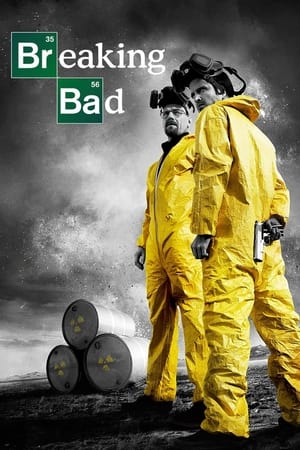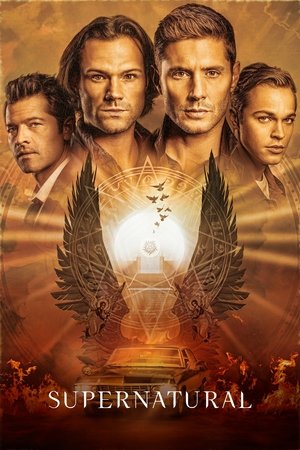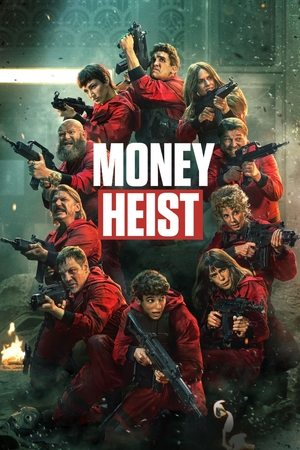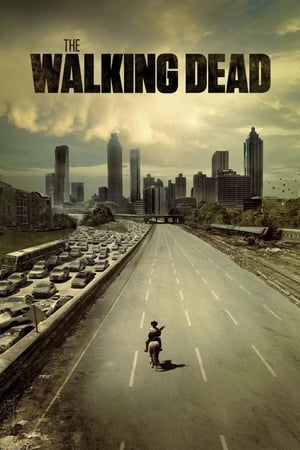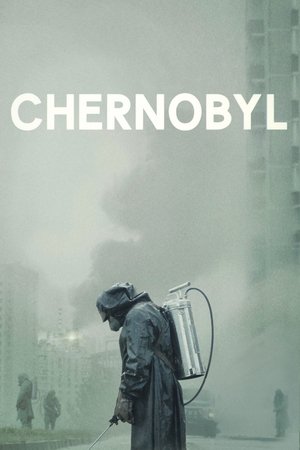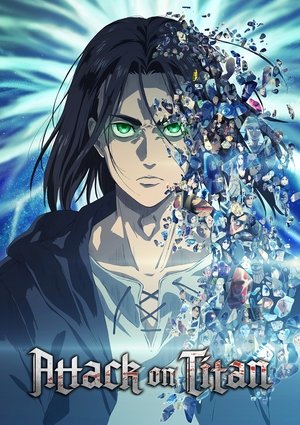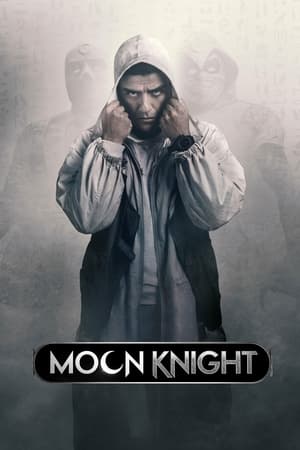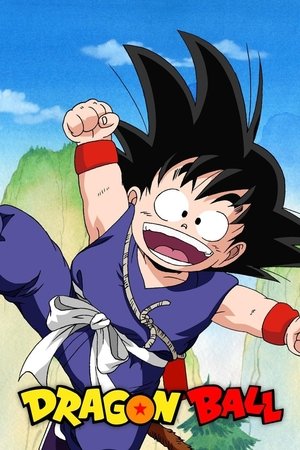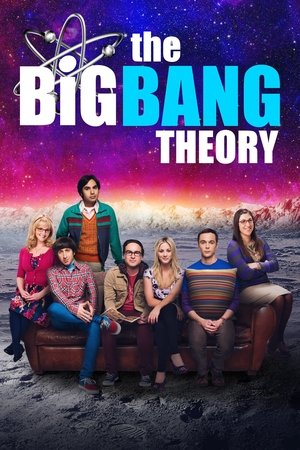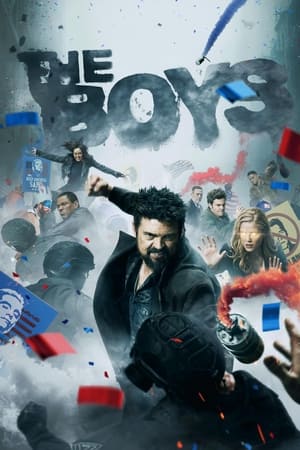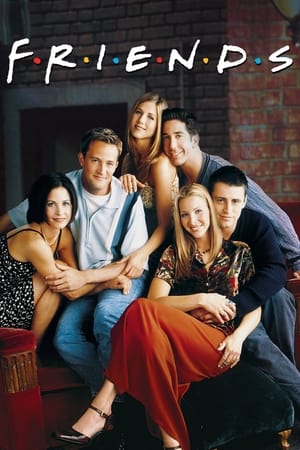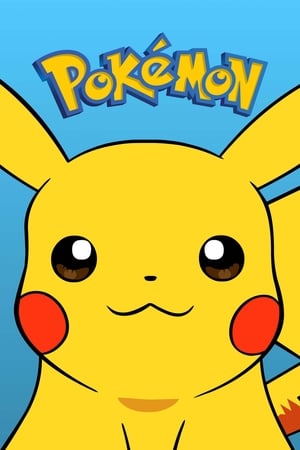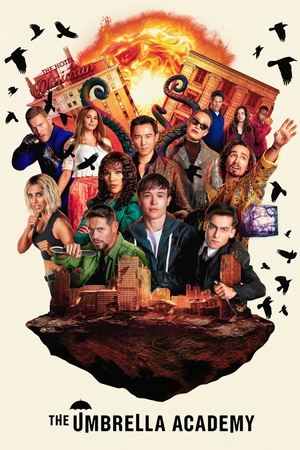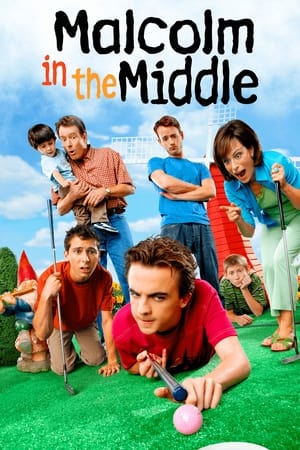Superquark
Television program of cultural diffusion, born in September 1995, designed and conducted by Piero Angela, development of transmission appreciated Quark.
Type: tv
Season: 28
Episode: N/A
Duration: N/A minutes
Release: 1995-01-27
Rating: 8.9
Season 1 - Superquark
1995-01-27
1995-02-03
1995-02-10
1995-02-17
1995-03-03
1995-03-10
1995-03-17
1995-03-24
1995-03-31
1995-04-07
1995-04-21
1995-04-28
1995-05-05
1995-05-12
1995-05-19
1995-05-26
Season 2 - Superquark
1996-01-12
1996-01-19
1996-01-26
1996-02-02
1996-02-09
1996-02-16
1996-03-01
1996-03-08
1996-03-15
1996-03-22
1996-03-29
1996-04-12
1996-04-19
1996-04-26
1996-05-03
1996-05-10
1996-05-17
1996-05-24
Season 3 - Superquark
1997-01-17
1997-01-24
1997-01-31
1997-02-07
1997-02-14
1997-02-28
1997-03-07
1997-03-14
1997-03-21
1997-04-04
1997-04-11
1997-04-18
1997-04-25
1997-05-02
1997-05-16
1997-05-23
1997-05-30
Season 4 - Superquark
1997-10-24
1997-10-31
1997-11-07
1997-11-21
1997-12-05
1997-12-12
1997-12-19
1998-03-13
1998-03-20
1998-03-27
1998-04-03
1998-04-17
1998-05-01
1998-05-08
1998-05-15
1998-05-22
1998-05-29
Season 5 - Superquark
1998-11-13
1998-11-20
1998-11-27
1998-12-04
1998-12-11
1999-01-08
1999-01-15
1999-01-22
1999-01-29
1999-02-05
1999-02-12
1999-03-05
1999-03-12
1999-03-19
1999-03-26
1999-04-16
1999-04-23
1999-04-30
1999-05-07
1999-05-14
1999-05-21
Season 6 - Superquark
1999-10-19
1999-10-26
1999-11-02
2000-06-13
2000-06-20
2000-06-27
2000-07-04
2000-07-11
2000-07-18
2000-07-25
2000-08-01
2000-08-08
2000-08-15
2000-08-22
2000-08-29
2000-09-05
2000-09-12
Season 7 - Superquark
2001-06-05
2001-06-12
2001-06-19
2001-06-26
2001-07-03
2001-07-10
2001-07-17
2001-07-24
2001-07-31
2001-08-07
2001-08-21
2001-08-28
2001-09-04
Season 8 - Superquark
2002-06-12
In this first issue, an impressive report: cigarette smoke causes pollution to the lungs that is 100 times greater than that which leads to blocking traffic in the city. For Superquark, researchers from the National Cancer Institute in Milan have repeated the experiment that allows us to see what happens in a closed environment when someone lights up a cigarette, thus revealing the real damage caused by passive smoking, as Giovanni Carrada will explain. Alberto Angela will tell us the story and secrets of the long and careful restoration thanks to which Giotto's frescoes in the Scrovegni Chapel in Padua were brought back to their ancient splendor. A "behind the scenes" of a construction site capable of moving. Guests in the studio will be Salvatore Mannone and Gustavo Torreggiani, billiard champions. The champions of the green baize will talk about the passion, studies, techniques, and secrets of a game with precise rules that requires knowledge and a lot of concentration.
2002-06-19
They are the largest baths of all time. They are located in Rome and have resisted looting and destruction over the centuries. They are the Baths of Emperor Diocletian. Alberto Angela went to visit them to discover their history, their architectural structure and their artistic treasures. For the usual appointment with the documentary, the second episode of the BBC series "Blue Planet" dedicated to the Ocean will be proposed. This evening we will talk about the so-called "coral seas", the richest and most colorful communities of all the seas in the world. Spectacular images of coral reefs, true underwater paradises. Guest in the studio is Dr. Donata Lodi of UNICEF with whom Piero Angela will address the sad topic of infibulation. A mutilation, a painful cut, an indelible mark. There are at least 40 countries in which the practice of genital mutilation on small victims is widespread.
2002-06-26
The subsoil of Rome hides real treasures. In areas of the city where modern buildings stand, remains of the ancient Imperial City are discovered: streets, baths, walls and even rooms where the frescoes made by our distant ancestors have remained intact. Like in the tomb of a family of senators of ancient Rome, buried for centuries under a building in the Porta Latina district. Alberto Angela went to visit it. For the usual appointment with the documentary, the third episode of the BBC series "Blue Planet" dedicated to the Ocean will be proposed. This evening we will talk about the Arctic and Antarctic. Extraordinary images will make us discover the life of apparently deserted and unreal worlds, where only darkness and cold seem to dominate. Guest in the studio is the writer Carlo Lucarelli. With Piero Angela he will talk about his profession as an author of crime novels, some of which have become screenplays for successful films.
2002-07-03
2002-07-10
2002-07-17
2002-07-24
2002-07-31
How much noise do night owls make? A study by the Faculty of Engineering at the University of Rome 3 tells us. In the documentary: how a hurricane is born and acts and how nature reacts. What dangerous secret can an egg hide? We're talking about salmonella. A guest in the studio, the Chievo coach who talks to us about his playing philosophy.
2002-08-07
2002-08-14
2002-08-21
2002-08-28
2002-09-04
A 9300 km long track that passes through different landscapes: Michelangelo Pepe takes us on the Trans-Siberian, on a journey that starts from Moscow to Vladivostok and crosses seven time zones, introducing us to different peoples and cultures. The reportage to discover stories and people met "on the way" continues in the next episode. Sharks swam in the ocean long before man set foot on our planet: they have existed since time immemorial. This week's documentary is the true story of the shark, starting from the monsters of prehistory up to the sophisticated killing machines of today.
2002-09-12
The journey along the Trans-Siberian continues, which in this second part, in addition to the different landscapes and the most varied humanity, will introduce us to Irkutusk. It is in this large center, during the construction of the line, that the two sections of the railway met, one departing from Moscow and the other from Vladivostok. Stories of history, sensations, the real Russia connected by a train in this service by Michelangelo Pepe. When cinema and television need to use animals, from tigers to tarantulas, they rely on instructors who are specialists in the sector.
Season 9 - Superquark
2003-06-10
Sanseverino entrusts the Certosa to the care of the monks who create an efficient agricultural company and enrich the construction of statues, gardens, works of art. Plundered by Napoleon's militias and long in decline, since the 1960s the Certosa has been restored and brought back to its former splendor. Alberto Angela tells us the history of the Certosa, but also legends and curiosities related to the life of the Carthusians. Piero Angela's guest for the column "Come si fa", edited by Rossella Li Vigni, is the director Franco Dragone, creator of the most beautiful shows of "Le cirque du Soleil", and of the extraordinary show for Celine Dion "A new day" on stage in Las Vegas. Dragone describes his human and professional adventure as the son of a miner, who emigrated to Belgium and achieved worldwide success. The nature documentary takes us to get to know the life of a very particular penguin: Harry is in fact a wild penguin who joins a band of city penguins.
2003-06-17
Extraordinary finds have emerged such as a pipe organ that archaeologists have reconstructed, allowing us to hear again the sounds that the Romans liked. Michelangelo Pepe visited the port of Rotterdam. Founded in the fourteenth century, it is still the largest port in the world for goods movement. Directly connected to the Rhine, the port is characterized by spectacular bridges and tunnels. The nature documentary deals with much-loved mammals: elephants. The mysteries of their bodies, the territories in which they live, their eating habits, and life with their young are described in every aspect. Piero Angela's guest in the studio is Emilio Previtali, champion of an extreme sport, freeride, that is, the descent from high and impervious peaks with a snowboard. Previtali describes the techniques and secrets of this sport and explains how avalanches can be caused with reckless behavior. Two extraordinary journeys: Superquark goes back in time to the Middle Ages.
2003-06-24
The 1928, the recovery begins after years of attempts and a colossal effort. The ships are taken to the Nemi Museum, built specifically for this purpose, but unfortunately they are destroyed in 1944 following the retreat of the Germans from Italy. The Museum, however, preserves exceptional finds. Through computer graphics reconstructions, you can admire the ships in their original appearance with their temples, colonnades and palaces. Michelangelo Pepe tells us the fabulous story of a train linked to everyone's imagination: the Orient Express. In this episode, the journey begins aboard the wonderful carriages that have crossed all of Europe until they reach the East, since 1883. It is a journey back in time, because famous people have been guests of the train, and because the Orient Express has been the scene of historic events, such as the transport of Churchill's coffin. But it is also the story of a cutting-edge technology that has revolutionized the way of conceiving travel.
2003-07-01
2003-07-08
2003-07-15
2003-07-22
2003-07-29
2003-08-05
2003-08-12
2003-08-19
2003-08-26
2003-09-02
Bombay: 18 million people live in the Indian megalopolis, and the trend towards urbanization is increasing. In the world, one in two people lives in an urban agglomeration. Between extreme backwardness and advanced technologies, Bombay produces a fifth of the total wealth provided by India in a year. Lorenzo Pinna tells us about the contradictions of this mega city. The third episode of the BBC series "Mammals" introduces us to the world of rodents, animals that have developed the ability to attack the hardest substances in order to survive.
2003-09-09
Italians learn to respect the highway code: the new law and cutting-edge technological tools help to avoid causing unnecessary massacres. Lorenzo Pinna and Alessandra Canonico, in a report, take stock of accidents in Italy and show us the latest innovations for controlling the speed of cars. They are certainly not domestic animals, yet hippos are dear to the imagination of children. They seem reassuring and peaceful with their funny size. In reality they are irascible and dangerous animals. They live, mate and give birth in water and the role of the leader is crucial for the life of the group.
2003-09-16
In 1993, the magnificent Renaissance Bridge of Mostar collapsed under the blows of the fratricidal war in the former Yugoslavia. Today, finally, we are thinking about reconstruction. A group of Italians has been awarded the task of designing the rebirth of the bridge as it was before the destruction, with its characteristic "humpback" shape. Marco Visalberghi shows us the difficulties and prospects of a long-awaited project. The predators of the seas: orcas. These carnivorous cetaceans that reach six tons in size, even feed on large whales and represent a personification of a sea "monster".
Season 10 - Superquark
2004-07-06
2004-07-13
2004-07-20
2004-07-27
2004-08-03
2004-08-10
2004-08-17
2004-08-24
2004-08-31
2004-09-07
From the sources to the Black Sea Delta: Michelangelo Pepe travels along the Danube, discovering the river that has accompanied European history. Traveling along it means traveling through time, among castles, fortresses, Roman camps, but also ports and modern factories. The crocodile, which survived the prehistoric era, has always inspired fear. We will see how these fearsome reptiles hunt their prey on the banks of African rivers. In the documentary by Sylvie Bergerot and Eric Robert. A small American city, Framingham, is an open-air laboratory: here for 56 years studies on cardiovascular diseases have been carried out. Lorenzo Pinna visited this unusual place of research and experimentation, meeting the inhabitants of the city who have undergone medical tests. It is the most important document of Norman civilization: known as the Bayeux Tapestry, it is an embroidery, made with colored wool threads, on a 70-meter long linen canvas.
2004-09-17
The turf of soccer fields is about to change its appearance: three laboratories, including an Italian one, are experimenting with synthetic and resistant turf destined to replace natural grass: Marco Visalberghi tells us about it. In the documentary “Samsara”, from the series “Asia-Stories of the Lost Jungle”, we will see how animals live in Asian forests during the rainy season. The elephant Chang learns to swim while the tiger Tcha bathes in the river. Tides are a fascinating phenomenon, always analyzed, however few know that during the tides the earth's crust also rises. Giangi Poli went down into a cave to tell us about this surprising and little-known event. In Naples, in the area of Maschio Angioino, the remains of three ships from the Roman era were found. At the time, the area was that of the ancient port and many other finds are coming to light.
Season 11 - Superquark
2005-06-09
A journey in Borneo inaugurates the new series of documentaries made by Nicolas Hulot: one of the last Edens of the earth described with spectacular and unforgettable images in the first episode of Superquark, broadcast Thursday at 9:00 pm on RaiUno. A guided tour, with Alberto Angela, in the heart of Tokyo where, before dawn, the large Tsukiji fish market comes to life, unique in the world for its size and quantity of fish: the tuna auction, the ice factory, the strangest fish species, curiosities and humanity in a sanctuary where business and tradition coexist. For the new column "75 years ago" curated by Fiorella Ravera and Giancarlo Di Giovine, the historic rooms of the 1930s of the Forlanini Hospital in Rome, specially transformed into a set for Superquark, to tell how people were treated in the past and what progress has been made to date. New technologies at the service of an investigation, human instinct and science to solve the most complex cases.
2005-06-16
The second appointment of the Ushuaia documentary series is with the spectacular images of Siberia: the land of ice, with its extreme nature. We will discover the customs of the nomadic populations who live in the North, and an extraordinary underwater world, rich in vegetation, in the depths of Lake Baikal. The secrets of the samurai swords: the Katana, symbol of the physical power and spiritual discipline of the Japanese warriors. Alberto Angela shows us exclusively, with the images of Michelangelo Pepe, the phases of the manufacturing of a sword, in the workshop of a blacksmith, who forges the weapon according to ancient tradition. The touching story of a former alcoholic, in the report by Marco Visalberghi. Alcoholism increasingly affects women and the path to overcome addiction is long and painful. Doctors and scientists study the damage caused by alcoholism and the possible therapies to defeat this often underestimated disease.
2005-06-23
The Ushuaia Nature Team, in France, describes the natural beauties of a world close to us and full of surprises. At 2500 meters above sea level, Nicolas Hulot flies over the limestone plateau of Lozere with an ultralight. Under the plateau, a sort of cathedral made of stone and rainwater is discovered. The typical products of our agriculture can be helped by genetics, to avoid being victims of parasites. Giovanni Carrada and Filippo Amisano analyze the Italian way to biotechnology. Alberto Angela and Michelangelo Pepe visit the Villas of Stabia: the Beverly Hills of Pompeii. Destroyed by the eruption, they still preserve the vestiges of their original luxury. Under many deserts there are large basins of fossil water. Lorenzo Pinna and Caterina Borelli went to the Libyan desert to document the cyclopean work that is underway to exploit this submerged resource. Diseases, corporal punishment, illiteracy: childhood in the 1930s, in our country, was not as protected as it is today.
2005-06-30
The Pacific Islands in Nicolas Hulot's documentary: Hawaii, emerging from the depths of the ocean; Tahiti, the oldest, and the Marquesas Islands with their extraordinary fauna. An unprecedented exploration in a world where fire and water have reigned since the dawn of time. Interview with Craig Venter, one of the scientists who played a leading role in decoding the human genome. Today Venter studies the bacteria found in the oceans. In the future, bacteria capable of extracting hydrogen from water could be created in the laboratory. Is the era of hydrogen energy approaching? In Lorenzo Pinna's report. 75 years ago in Italian cities there was only one car for every 225 inhabitants, flocks and herds of oxen crossed the streets among pedestrians and bicycles, the tram was the preferred means of transport. In the column "75 years ago", edited by Fiorella Ravera and Giancarlo Di Giovine, urban traffic before and after the automobile boom.
2005-07-14
2005-07-21
2005-07-28
2005-08-04
2005-08-11
2005-08-18
2005-08-25
2005-09-01
Wild horses in Iceland: in a beautiful and desolate nature, the race of these magnificent animals that live free. The majestic rides in the Icelandic highlands in the documentary “Running with the herd” by Thorfin Gudnason. Mice that eat few calories live longer and without diseases. And humans? For the moment in America they are conducting studies on monkeys, animals that live quite long, but a NASA engineer is even carrying out the experiment on himself: a life with few calories, in the report by Lorenzo Pinna. Alberto Angela went to visit the shipyards in Toulouse where the giants of the air are built: airplanes. The maxi hangar where the A380 model is built is the largest industrial warehouse in Europe for civil aviation. The behind the scenes of the flying machines that help us travel every day, in the report by Michelangelo Pepe. Today 60% of Italian families own a comfortable home.
2005-09-08
Among the ferocious lions of the Samburu National Park in Kenya, there is a lioness who has adopted a baby antelope, an extraordinary case in the world of felines. The dramatic story of this lioness who goes outside the norms of nature, in the documentary "Cuore di Leonessa". Our body, even if old and worn out, is capable of renewing itself, both by giving birth to children and by regenerating its own tissues. The tissues of the heart are renewed, for example, thanks to stem cells, the new frontier of the youth of the human body. In the report by Marco Rosi and Marco Visalberghi. A great treasure of the Romans is found in Switzerland: precious pieces of silver and ornaments of great value, found by chance in the 1960s. Three officers of the Roman fort of Augusta Raurica, pursued by the Barbarians, are said to have buried their precious trunk right here. Alberto Angela and Michelangelo Pepe tell the stages of this incredible story.
2005-09-13
The last episode of the 2005 edition of Superquark will be entirely dedicated to Albert Einstein. In fact, 2005 represents a double anniversary: 100 years ago Einstein published the theory of relativity and 50 years ago he died, in the United States. For this reason, the international scientific community has declared 2005 the year of physics and dedicated it to the scientist who, more than any other, has contributed to changing our way of understanding the world. Superquark will tell the story of Einstein the man, with the help of the drama produced by RAI in co-production with Antenne 2 and Telecip, directed by Lazare Iglesis and starring the English actor Ronald Pickup. We will follow Albert Einstein since he was a child, when he was even diagnosed with a “delay” in development, and as a boy, when he had problems at school, except in mathematics.
Season 12 - Superquark
2006-06-29
2006-07-06
2006-07-13
2006-07-20
2006-07-27
2006-08-03
2006-08-10
2006-08-17
2006-08-24
2006-08-31
2006-09-07
2006-09-14
Season 13 - Superquark
2007-06-07
Superquark begins this year with an exploration of Planet Earth, the first of a beautiful series of documentaries made by the BBC in the most hidden and fascinating corners of the planet. In this episode, the journey from one pole to the other in the observation of the main ingredients that have shaped our earth as it is: salt, water, atmosphere, inclination of the earth's axis, etc. Alberto Angela and Michelangelo Pepe will accompany us in the exploration of one of the largest catacombs of Roman times, those of Peter and Marcellinus on the Via Casilina, which extend for a few dozen kilometers and preserve spectacular traces of wall paintings. A strange disorder, prosopagnosia, that is, the difficulty in recognizing faces, cited by the famous neurologist Oliver Sacks, in the case of an English girl told by Marco Visalberghi. Radar and sonar derived from the observation of bats and dolphins, hang gliders from the study of the remiges of condors and so on.
2007-06-13
In this episode of Superquark, the documentary from the BBC Planet Earth series focuses on fresh water, our most precious resource, which constitutes only 3% of the planet's water. The directions in which it falls or flows determine the distribution of life forms on Earth. The cameras will follow the course of rivers, from their sources to the sea, exploring waterfalls, canyons, lakes and swamps, with their fauna and incredible landscapes, shaped and brought to life by water. Incinerators, regasification plants, TAV... The planet of protest and protest against major works (the so-called NIMBY, "Not in my back yard") which, at least in theory, should promote the development of the country, in the report by Lorenzo Pinna and Vanessa Strizzi. Alberto Angela and Michelangelo Pepe will accompany us in the exploration of Castel dell'Ovo in Naples. It only seems like an ancient fortress, but in reality it holds 2700 years of history.
2007-06-20
In this episode of Superquark, the documentary from the BBC Planet Earth series deals with mountains. When a man reaches the top of a mountain, he is pleased to have conquered it, but mankind can only visit this hostile world. Planet Earth presents the ‘real’ inhabitants of the mountains and reveals the secrets of their survival on the highest peaks of the planet, in an extreme environment made of rocks, ice and snow, a vertical life as impervious to man as the surface of another planet. What links a rich tomb of Ancient Rome with an expedition to the seabed of Puglia? Stories of tombs, sarcophagi and shipwrecks in the report by Alberto Angela and Michelangelo Pepe. Today many types of drugs circulate in the world. However, one, despite being different from the others, generates a similar addiction and similar consequences: gambling. In the report by Marco Visalberghi. Thanks to the oil extracted from the seabed, Brazil manages to be energy self-sufficient.
2007-06-28
In this episode of Superquark, the documentary from the BBC series Planet Earth deals with Caves. Caves are one of the few habitats not directly influenced by sunlight, but this does not prevent life. The cameras venture into the darkness to reveal an underground world made of caves, caverns and tunnels that very few humans have seen, such as the Grotta delle Rondini in Mexico, a 400-meter cliff deep enough to swallow the Empire State Building. For some it is the drug of the rich, for others it is the dust of success. In reality, Cocaine is no longer the vice of a privileged few, and much less does it represent a shortcut to obtaining easy successes in professional life. It is just a drug, today among the most widespread, but also among the most devastating. The biochemical mechanisms of this addiction in the report by Marco Visalberghi. Two important wrecks have been found in the Ligurian Sea.
2007-07-05
2007-07-12
In this episode we will continue our journey to discover planet Earth. This time we will go underwater to discover things never seen before. Then we will see: the Transmilenio, Bogota's public transport system. Among the wrecks at the bottom of the Mediterranean, a ship of the sky, the B-17 bomber. A masterpiece that was thought to be lost discovered by new technologies. Can winds and computers find a common language? Music from garbage: playing Mozart with recycled materials. The great plague epidemics of the past, a tragedy but also an opportunity for growth. Two generations compared: how Italian homes have changed in the last fifty years. What is inside the thousands of beauty products that women spread on their bodies every day? A journey into the minds of animals: dogs and monkeys, two intelligences compared.
2007-07-19
2007-07-26
2007-08-02
2007-08-09
2007-08-16
2007-08-23
2007-08-30
Season 14 - Superquark
2008-07-03
The first episode opens with a fascinating documentary on Ethiopia from the French series Ushuaia. Ethiopia, a surprising country for the complexity of its aspects; with a changing, arid territory and large salt lagoons; with the Omo Valley populated by men and women, whose origins seem to date back to the dawn of time, inhabited by a fauna unique in the world. Ethiopia, the country of origins. In the reportage by Alberto Angela and Michelangelo Pepe, we will discover the most important gold mine of the Roman Empire, Las Medulas in Spain, declared a World Heritage Site by UNESCO. 100 years after its construction, the Panama Canal, one of the greatest engineering works that connects the Pacific Ocean to the Atlantic, will be doubled. By taking the Panama shortcut, in fact, ships save the 15-20 days needed to circumnavigate all of South America. And over 95% of global freight traffic takes place by sea.
2008-07-10
A journey to the edge of the imagination, 600 km off the coast of Chile, in the Juan Fernandez archipelago. This is Robinson Island (that of the hero of Daniel Defoe's novel, in turn freely inspired by the real adventure of Alexander Selkirik). The gigantism and the profusion of wild and original flora make this place one of the greatest examples of endemic botanical phenomenon on the planet and a model of nature conservation. Alberto Angela and Michelangelo Pepe, on the trail of Saint Exupery, the author of one of the most read books in the world, The Little Prince. Was he really shot down by a German pilot while flying from Corsica to France? Lorenzo Pinna, assisted by Caterina Borelli, will take us to the tunnel, located on the seabed under the Bosphorus, which will connect European Istanbul to Asian Istanbul with a subway. During the works, the remains of 32 ships from 1000 AD were found.
2008-07-17
We will travel to Asia with Nicolas Hulot along the Mekong, a river over 4,000 km long, to discover the people who still live along the river. We will follow him into caves, inside waterfalls, in Buddhist temples, flying over forests and floating houses, to reach the lost city of Beng Melea, a short distance from the historic site of Angkor Vat, the famous temple-mountain, with its five ringed towers, erected at the time our cathedrals were built and immersed in the jungle. Nothing remains of the living beings that populated the Earth thousands of years ago. Everything has been pulverized. But in some cases, thanks to the fossilization of animals and plants, today we can reconstruct the skeletons of dinosaurs, or entire forests of prehistory. This is what happened in Argentina, where Alberto Angela and Michelangelo Pepe went to film an extraordinary example of a petrified forest, with the trees still all aligned.
2008-07-24
Following in the footsteps of the greatest explorers of the Poles, Planet Earth, with the help of British Navy helicopters, leads the BBC's high-definition cameras to film from above the incredible spectacle of humpback whales as they feed. Other cameras film under the ice. These are never-before-seen images of our planet and the great protagonists of the ice worlds: polar bears, seals, walruses and the heroic emperor penguins, who manage to survive at deadly temperatures, defending their fertilized eggs. The civilizations of the past have left tombs, imperial palaces, temples. That is, places of power or worship. Instead, the most impressive remains of Roman civilization are almost always places where people had fun: theaters, amphitheatres, like the Colosseum, or the Baths, like the grandiose ones of Caracalla, in Rome, where people walked, met, with large spaces for hot and cold water pools, gyms, outdoor games.
2008-07-31
2008-08-07
The oceans cover two-thirds of the planet's surface, yet they are still largely unexplored. For animals that live on the surface or in the deepest abysses, the most difficult task is finding food and conserving energy. Planet Earth's cameras travel across the vastness of the planet to show how high the stakes are to survive in this boundless, fruit-poor environment. Once upon a time, anyone who lost their legs in an accident was handicapped for life. Today there is a young man who walks and runs with prosthetics. He is Oscar Pistorius. Much has been said about him, but less about his legs: they are a prodigy of technique and craftsmanship and the laboratory that produced them is located in Iceland. Francesca Marcelli went to visit this refined technological workshop. Becoming an athlete for the Olympics is the sum of many factors: a suitable constitution, lots of training, but also a particular determination and the commitment to keeping your biological machine in full efficiency.
2008-08-14
2008-08-21
We continue our journey along the Ganges, the endless river that runs through India. The plains that were once fertile wilderness inhabited by tigers, lions and cheetahs have now become the most densely populated place on the planet. Thanks to the presence of the sacred river, this region has seen the birth of great civilizations and religions; but how have the plants and wild creatures of the plains adapted to survive in a world increasingly dominated by man? The Svalbard Islands, practically the last inhabited outpost before the Arctic ice pack, have become a large natural laboratory for the study of climate change and home to the coldest university in the world: UNIS, a prestigious university desired by the Norwegian government with the intention of making it a center of excellence for its education and research system. In the report by Andrea Pasquini.
2008-08-28
Superquark opens the evening with a documentary dedicated to the leopard, or rather to a female leopard, filmed in her first steps and in her hunts as an adult. The documentary is the result of 3 years of stalking and filming by the two authors (Derek and Beverly Joubert), who filmed her since she was 8 days old. It is a very adventurous biography, so to speak. It is often said that Italy's oil is its natural and cultural beauty. Why then do our French and Spanish neighbors have an increasing flow of tourists and we are declining? What is happening in the tourism industry and what can be done, in the report by Cristiano Barbarossa. Located at the entrance to the Venice lagoon, the island of Lazzaretto Novo has probably had a strategic function since ancient times in controlling the waterways towards the hinterland. Archaeological finds testify to the human presence there since the Bronze Age.
2008-09-03
The last episode of Superquark airs on Wednesday, with a documentary that is very different from the usual. Not a nature documentary, but a true story. A story that dates back 2000 years, and that made ancient Rome tremble. It is the so-called gladiator revolt, led by a rebel gladiator named Spartacus. At the end of the documentary this event will be framed in its historical context by Prof. Alessandro Barbero; while Alberto Angela and Michelangelo Pepe will lead us to the discovery of gladiator burials, never found before. Medellin, in Colombia, has long been one of the drug trafficking centers, and also one of the areas with the highest concentration of violence. Various initiatives have tried to improve the situation; but there is one, in particular, that has proven to make inroads into the psychology of young people, especially those "at risk" kids who could be attracted by organized crime contracts. Cristiano Barbarossa went to Medellin to see what it is all about.
Season 15 - Superquark
2009-06-16
2009-06-23
The second episode of Superquark opens with a magnificent documentary from the BBC series The Great Show of Nature: the epic journey of over two million wildebeest, zebras and Thomson's gazelles, across crocodile-infested rivers, to graze on the Serengeti plain made fertile by the rains. But how will they manage to survive in this arena full of carnivores? In this episode many columns and reports, including: the earthquake in L'Aquila has urgently brought up an old question: is it possible to predict earthquakes? Superquark has tried to understand. There is not much gold on Earth. That's why it is precious. But how is gold extracted today? SuperQuark visited one of the largest gold mines in the world: GoldStrike Mountain in Nevada, United States.
2009-07-02
Superquark opens the third episode with the great thaw of the Arctic, that immense expanse of ice that in the long winter remains in the dark and freezing, almost as if it were another planet and in the summer, slowly, loses its mantle of ice, the sun is almost always on the horizon, and whales, belugas, foxes, lemmings and large flocks of birds return to swimming, running, flying. Only for the masters of the ice, the polar bears, this is a delicate moment. Especially since the warming has begun to thin the frozen crust and compromise its ancient habitat. In this episode many columns and services, including: with Alberto Angela in the rooms of Augustus and Livia on the Palatine, now enjoyable for the public, after the restoration of the frescoes, which enhance the wonderful original reds and greens. How do you defend yourself from earthquakes? Obviously by trying to predict them and building buildings appropriately, or by reinforcing old ones.
2009-07-09
Another of the spectacular BBC series The Great Spectacle of Nature is the documentary of the fourth episode of Superquark, which takes us along the coasts of Alaska, when the sun returns to warm the earth and the water becomes an enormous pantry, full of food: it is the Time of Abundance. Humpback whales, with their calves, arrive here from as far away as Hawaii, but the price to pay is the very dangerous presence of hungry killer whale. Numerous, as always, the services and columns, among which: how can aesthetic beauty, insulation, recycling and even anti-earthquake systems be reconciled. We are talking about the Academy of Science of San Francisco, where the original solutions are not signed by some brilliant American architect, but by an Italian: Renzo Piano. In the last thirty years the fertility of Western men has drastically reduced: how widespread is male infertility and what are the causes?
2009-07-16
Every year, during the flood season, 6,000 square miles of the Okavango Delta desert in Botswana are transformed into a labyrinth of lagoons, islands and swamps. Millions of animals are attracted to the oasis, including large herds of hungry elephants: the stage is set for one of the greatest clashes in nature. As always, there are numerous reports and columns, including: a new study by the Institute of Neuroscience in Pisa, “Train the Brain”, training the brain. The attempt is to stop or reverse the path towards dementia of people who are still quite well, allowing them to live a more pleasant and stimulating life. It was our satellites that followed the evolution of the great flood in Burma in 2008, guiding the United Nations relief operations. Now, the Civil Protection has asked for a three-dimensional mapping of the entire national territory.
2009-07-23
Tonight an unusual BBC documentary with spectacular footage of… sardines! With the arrival of winter, the waters along the east coast of South Africa cool, attracting billions of sardines that push north of the Cape attracted by the rich deposits of plankton. The “Sardine Run” is the greatest marine spectacle on the planet and attracts numerous ocean predators: dolphins, sharks and greedy whales throw themselves on the sardines, while gannets rush from the sky like rain. Numerous, as always, the reports and columns, including: “It is not for children with musical talent or for a certain social class. We do not just want to introduce children to music, but to life through music. Music helps us to understand the world” are the words of the great conductor Daniel Barenboim, who founded the first musical kindergarten in Europe, the Musikkindergarten, in Berlin.
2009-07-30
The giant bison were at risk of disappearing forever. Now, in the Yellowstone caldera, the bison are back. But this symbol of America would not exist without its fearsome adversaries. And now, they are back too…the wolf and the grizzly, ready to kill. Here even the landscape can bring death. Then there is the war season, when the bison fight among themselves. For the first time in almost a century, the bison faces its ancient rivals in the “Serengeti of America”… Tonight on Superquark, in the fascinating National Geographic documentary. Numerous, as always, the reports and columns, including: Parkfield, a small town in California, is a center that is monitored carefully. And the studies that are carried out on site can be very interesting for us Italians, for radon and earthquakes. Alberto Angela takes us on a curious journey through the history of means of transport.
2009-08-06
Dolphins and whales have evolved to have the largest brains on the planet. In terms of body size, they are second only to humans. Today, however, researchers are discovering that dolphins are not only intelligent, but also sensitive. In tonight's amazing BBC documentary, two stories of survivors of terrifying encounters with sharks suggest that dolphins may be able to recognize human emotions, understand when we are scared, when we feel pain. The rescues, which took place in the Red Sea and in New Zealand, are proof of the intelligence of dolphins and also of their willingness to help another species. In this episode, many interesting reports: Parker is a Canadian child suffering from a severe congenital immunodeficiency. To avoid the risk of getting sick, Parker cannot leave the house, play with other children or go to school, and is forced to live a prisoner in an aseptic environment, often even in hospital. This is why children like Parker are called "bubble children".
2009-08-13
Tonight's documentary is dedicated to a very particular bird, which walks upright and does not fly in the air but under water: the penguin. Despite its funny and slightly awkward figure, it is a champion of natural selection. We see it adapt to an extreme environment, the Antarctic continent. As always, there are numerous reports and columns: until a few years ago, the media attention was monopolized by the problem of AIDS. Now, the problem seems to have almost disappeared. But is it really so? An update on the situation. In Priolo, Sicily, from an original idea by Nobel Prize winner Carlo Rubbia, developed by Enea engineers, a power plant for the production of electrical energy that uses thermodynamic solar energy is being built. Enormous towers of light to be able to imagine the archaic skyline, full of vertical elements and ancestor of the contemporary metropolis.
2009-08-20
Tonight's documentary takes us to Africa, showing us that life in nature can be much more difficult than one might imagine. In this case, it is the lack of water that puts a natural environment in crisis, and the protagonists are hippos, who fight for life, searching, with exhausting marches, for the last puddles that allow them to survive. But this time, in addition to an exceptional drought, an even more insidious danger threatens their life: anthrax. Numerous and interesting reports: in the Roman Museum of Palazzo Massimo, the mummy of a girl from 200 AD is preserved, with the sarcophagus decorated and accompanied by many interesting objects that provide clues to her life, as Alberto Angela tells us. In Obama's America, a green new deal invests in energy saving, in the reduction of polluting emissions and in the production of renewable energy, to boost the economy and protect the environment.
2009-08-27
In tonight's BBC documentary, the story of the sperm whale and his long life. We find him at the age of 30, at the height of his physical power. We follow him in his fantastic dives, hunting for prey, but we also see him in difficult moments, when he has to deal with his eternal enemies, the orcas. The sperm whale, in the Pacific seas of the 1940s, finds himself facing an event never seen by his ancestors, who have swum in the oceans for millions of years: war. It is just one of the many moments experienced by this immense mammal, before reaching 80 years of age and the last resort of his journey. Numerous and interesting reports: every day we discover news of scams and frauds, often on a large scale: in the use of European funds, in the counterfeiting of brands, etc. Some frauds, in particular, directly affect citizens: they are food frauds.
Season 16 - Superquark
2010-06-24
2010-07-01
This episode of Superquark opens with a magnificent documentary from the USHUAIA series: One day the earth sank. From the Bahamas to Mexico, crossing Cuba and the island of Montserrat, Hulot and his team tell us the story of the geological, animal and human evolution of those places that witnessed an upheaval, 60 million years ago, due to the fall of a meteorite, one of the probable causes of the disappearance of the dinosaurs. A few hundred thousand years later, the immense desert was transformed into a sea, due to the melting of the polar ice caps caused by global warming. In this episode, many reports, guests in the studio and columns: the Apocalypse of 2012 is a lie. Superquark explains why, starting from the Mayan prophecy. Alberto Angela in the Etruscan necropolis of Tolle, near Siena, for the live opening of tomb no. 1000. A city of science in the desert of Qatar. Even the emirs invest colossal sums in research. 3D: new technologies applied to cinema and television.
2010-07-08
In this episode, there will be many topics that will be addressed, starting with the interesting report by Alberto Angela on the discovery of the surgeon's house in Rimini. The house, which dates back to the 2nd century AD, is one of the oldest Roman homes in the area, stands a stone's throw from the sea and represents a true archaeological treasure. Paolo Fresu and his trumpet, guests of Piero Angela, in the studio, to tell us about the characteristics of this instrument and for an unusual musical performance. In the column dedicated to technology, Marco Visalberghi presents the new developments in the field of robotics. In particular, we will see the application of a sophisticated bionic hand. The oil disaster in the Gulf of Mexico. A report by Lorenzo Pinna will clarify the dynamics, risks, peculiarities and details of this devastating ecological disaster and how, more generally, oil activities are managed and regulated in the world.
2010-07-15
In this episode, we will address topics ranging from nature to technology to medicine. The episode opens with the BBC documentary “The Great Rift - water” focusing on the beauty of the fauna and flora of East Africa. Water in all its forms is the absolute protagonist: lakes, waterfalls, rivers, boiling springs, and the ocean that is scanned with latest-generation submarines, and of course the inhabitants of this habitat, from birds to predators. In the report “Telerilevamento”, by Barbara Gallavotti and Gian Marco Mori, the extraordinary three-dimensional images of the Italian territory are shown, obtained thanks to the comparison of satellite and aerial images, elaborated and perfected by computer. An aerial mapping of Italy of great precision, as has never been seen before. For medicine, instead, Marco Visalberghi and Barbara Bernardini, analyze a disease that afflicts 9 million people in Italy: migraine.
2010-07-22
In this episode, the adventurous journey continues in the African Rift Valley, with the BBC documentary, Erba, dedicated to the savannah. In these immense spaces, in the shadow of the Rift volcanoes, there is the highest density in the world of wild animals and especially elephants. At night, the savannah becomes the kingdom of carnivores and predators. In a succession of ever-changing situations, we will see for the first time the extraordinary images of chimpanzees sleeping in their dens. Alberto Angela and Giampiero Orsingher take us to the extraordinary site of Masada, in the desert of Galilee, near the Dead Sea. In Roman times, Masada, a natural fortress of spectacular beauty, was transformed by Herod into a fortress palace, where, thanks to ingenious hydraulic solutions, water was brought. In this sort of "garden in the desert", a group of a thousand Jews decided to dig in and resist Roman rule, in 66 AD, under Nero.
2010-07-29
2010-08-05
This episode of Superquark opens with the wonderful story of motherhood in the animal world: the BBC documentary “Mothers and Children” describes the intimate relationship between mothers and their cubs from the first days after birth. We will see, among others, lions, lemurs, hippos and elephants in the most tender or dramatic moments with their cubs. In fact, there are a thousand fun curiosities and also dangers in the first moments of life, many threats, for example, come from their own species and, precisely through animal behavior, we will follow a surprising evolutionary path. Everyone knows President Kennedy, but not everyone knows that he suffered from a rare disease, Addison's disease, which still affects one in 8,000 people and causes excruciating kidney pain. This disease is caused by the failure of two small adrenal glands, which can be defined as “stress glands”.
2010-08-12
The episode takes us to discover what is hidden in the folds of the earth. The BBC documentary “Depths of the Earth”, through spectacular images, describes how geology, geographical position and consequently climatic factors influence the development of man and somehow determine his history. Everyone has heard of the placebo effect, but what is the nocebo effect? This term indicates the tendency to negative autosuggestion with respect to, for example, a drug or a therapy. It is the exact opposite of the placebo effect. Francesca Marcelli, has collected the opinions of doctors and researchers on mass psychogenic diseases and on how to recognize the nocebo effect. The “How to do it” column, edited by Rossella Li Vigni, takes us to Puglia, in the Apricena quarries, where a group of paleontologists have made important discoveries on prehistoric animals and men.
2010-08-19
The BBC documentary “Wind” deals with the effects of winds on our planet and how their action affects human life. Deserts and fertile fields, navigation and hurricanes: places and phenomena linked to the movement of winds and their diversity. Spectacular images take us to the different continents where the winds exert their power, from China to the Pacific. In California there is an instrument capable of recreating on earth the thermonuclear reaction that occurs every moment on the sun. Marco Visalberghi and Barbara Bernardini, in the report “The sun in a room” describe this sophisticated device made of 192 laser beams that in a spherical room of 10 meters by 10, reproduces the sun, and they explain the many scientific implications connected to this technology. Every era produces dangerous drugs. One of these drugs, even if not in the traditional sense, can be considered the internet.
2010-08-26
Water in all its forms, in the spectacular images of the BBC documentary “Water”, which tells us how this element, in continuous transformation, has contributed to creating life on our planet. We will discover the factors that have determined the fate of societies and we will learn about the influence of water in every aspect of our history, from art to industry, from religion to war, from world domination to the decline of a civilization. Every year hundreds of thousands of Italians enter intensive care. Many stay there for a few days, others, instead, for months. Usually, isolated from relatives, apart from a few very brief contacts. But is it really so necessary? Where it was decided to open the doors of intensive care, there was no turning back. Cristiano Barbarossa went to learn more about the developments of this new medical approach. The long shadow of livestock farming: how much carbon dioxide is released into the environment to eat a steak?
2010-08-30
For the last episode, SuperQuark presents the Pioneer Production documentary, “The Living Body”, which follows the development of the human body, in particular of a woman, from birth to old age. Computer graphics, special effects and cutting-edge medical images explain the biological differences between human beings, in the different stages of life, through the transformations of the body. Giovanni Carrada and Gian Marco Mori, in the service “Telemedicine for heart patients” followed, at the Mayo Clinic in Rochester, in the United States, the testing of a new electronic device for heart patients, which can be worn. In this small and light device, there are sensors to monitor cardiac function, a microprocessor and a transceiver. The patient can check his or her health status and send the data collected to the hospital, via a smartphone. It is a revolutionary technology that allows for early intervention on heart disease.
2010-08-30
Season 17 - Superquark
2011-06-16
The first episode of Superquark opens with a magnificent documentary from the USHUAIA series by Nicolas Hulot: a journey of contrasts between an extremely urbanized India and a Nepal where time seems to have stopped. Immersed in the calm of the Himalayan mountains or among the teeming masses of the Indian megalopolises, the “men-nature” seem to live in harmony with the elements. Strange, surprising and colorful. Alberto Angela will guide us on a visit to an unusual museum, the Cesare Lombroso Museum of Criminal Anthropology in Turin. The countless finds, which Prof. Lombroso had collected, belong to criminals and the mentally ill. The professor's scientific theories, later contested, nevertheless laid the foundations of criminology, with the use of analytical and statistical methods that are still current.
2011-06-23
In the second episode of Superquark a documentary from the new BBC series Human Planet: Rivers. The rivers of our planet provide many of the essentials for life: fresh water, natural routes of communication and entertainment, but living on a river can be a risk, whether it is the Amazon or the Ganges. The dangerous and incredible life of those who live "of" the river. How many times in the countryside have we seen those extraordinary webs built by spiders in the bushes, to trap insects? Today researchers have understood that spider thread could be a very precious material, for many uses, because it has a resistance that no other material we have built has. It could, for example, replace the cartilage of the knees. And this prospect is now very close to clinical application. In the report by Barbara Bernardini. In less than a century, cyclists' performances have skyrocketed: from 23 km/h in 1914 to 40 km/h in 2009.
2011-06-30
In the third episode of Superquark another documentary from the spectacular new BBC series Human Planet: Jungles. Tropical forests cover only 2% of the planet, but half of living species live there. Surviving in this hostile environment requires a deep understanding of jungle ecology. For example, most edibles grow at more than 30 meters above sea level, so getting enough food is a strenuous daily struggle. Almost 3 million Italians have difficulty reading and writing. It is dyslexia, a disorder that is well known today, but which in the past meant that certain children at school were considered lazy, uninterested, or worse, unintelligent. Today we know that this is not the case, and on the other hand, so were Einstein and Kennedy. In the report by Marco Visalberghi.
2011-07-07
For the opening documentary of the fourth episode of Superquark, of the BBC Human Planet series: Oceans. The oceans support most of the species on Earth, although humans are not among them, because they cannot drink or breathe salt water. However, they have never stopped using it to their advantage: swimming, fishing, surfing, traveling on the oceans. More than a third of the population lives on the coasts of the ocean and some populations are deeply dependent on it for their subsistence, such as the fishermen of Southeast Asia or the Brazilian lagoon. But the ocean is a capricious mistress: sometimes the height of beauty and calm, other times the deepest terror.Hof ways. But the ocean is a capricious mistress, bountiful one moment and terrifyingly deadly the next. There is a kind of large safe, perhaps more precious than the one that holds the gold of the Bank of Italy.
2011-07-14
We can survive weeks without food, but only a few days without water. The eternal struggle for water and the ingenious solutions adopted in the most desert areas of the planet, in the documentary of the fifth episode of Superquark, of the BBC Human Planet series: Deserts. An army of 10 million interviewers for the largest census on the planet. The one that ended a few weeks ago in China. To count what is the largest population in the world and understand its dynamics in an era of colossal changes. In the report by Lorenzo Pinna. After the tragedies of the Heysel Stadium in Brussels and the seizure of the “Achille Lauro”, one of the flagships of the State has taken shape: the Crisis Unit of the Farnesina. A “handful” of officials and operators, working 24 hours a day, 7 days a week, prepares emergency and evacuation plans, “shaping” them on all possible scenarios, from natural disasters to health emergencies, to international political revolts. Structure copied by many other countries.
2011-07-21
The weather in the mountains can change suddenly and go from sultry heat to arctic cold. The higher you go, the less oxygen you have available. Nonetheless, millions of people around the world choose to live at great heights, compensating for the great difficulties of survival with technology or community spirit. The Himalayan and Andean populations are an example for all. The fascinating landscapes of the high mountains and the people who live there at dizzying altitudes in the extraordinary documentary Mountains from the BBC Human Planet series. The number of nerve cells that make up our brain is equal to that of the stars in the Milky Way: one hundred billion. Today, thanks to research, such as that conducted at the University of California in Los Angeles, it is possible to understand what happens in the brain when you use the many and different drugs, which unfortunately are in circulation.
2011-07-28
It is one of the most extreme places on Earth: dark and frozen for months in the winter, without trees or edible plants in the summer. Yet 4 million people have learned to live there thanks to their understanding of the wild nature that surrounds them. It is the Arctic, with its animals such as belugas, narwhals and seals, essential for the survival of men. An extraordinary documentary from the BBC Human Planet series shows its most "secret" and unknown corners. China, a leader in the field of renewable energy? Not much is known about it, but in reality it is on its way to becoming the largest producer of wind and photovoltaic systems, making the USA and the European Union nervous. At the National Museum in Copenhagen, incredibly preserved deceased and funerary objects open up glimpses into the Bronze Age.
2011-08-04
Prairies feed the world. Over thousands of years, humans have learned to cultivate prairies and domesticate the animals that live there. The success of this operation has brought the population to the current seven billion. But it has not been all roses and flowers for the men of the prairies. Even if they are less hostile places than glaciers and deserts, living on the steppes of Mongolia or the plains of Kenya is not a walk in the park and still requires skill, a spirit of adaptation and collaboration with other living creatures. Prairies: another extraordinary documentary from the BBC Human Planet series. The Roman civilization has left behind monuments, temples and extraordinary works of engineering. By digging, as from a mine, remarkable finds continue to emerge and sometimes even the remains of monumental complexes.
2011-08-11
It is a story that lasts 500 million years and that features some of the most exotic and wonderful marine creatures on earth. Coral is nature's greatest architect and coral reefs have the greatest biodiversity of any ecosystem. Two thousand hours of extraordinary footage to tell the story of the Great Barrier Reef. Nature had anciently arranged for sexual development to occur when young people were ready for reproduction, that is, to have children. Instead, we now enter the reproductive age when the body and mind are still infantile. With the possibility that this modifies, early, not only the voice but also behavior. Precocious puberty in the report by Francesca Marcelli. Nimby, translated: not in my backyard, not in my backyard. It is the position of those who protest against the construction of power plants, railway or highway infrastructure, incinerators or regasification plants, wind generators or high-voltage pylons.
2011-08-17
In the tenth episode of Superquark a very curious and funny documentary from the BBC series Seeing the Invisible about Speed Limits.
The human eye takes about fifty thousandths of a second to blink, but our brain takes one hundred and fifty thousandths of a second to process what we see. It's very little, but in those few thousandths of a second extraordinary things happen that we don't realize. With the help of the latest generation high-speed cameras, we take a journey beyond the limits of our eye, trying to discover the secrets hidden in every single element of our planet. Wars fought by robots? It seems like a science fiction film, but it will be the reality of the near future. In the report by Lorenzo Pinna. An aneurysm is a congenital weak point in the arteries that, with blood pressure and the passing of the years, swells and risks bursting. If this happens, there is a four in ten chance of dying. More and more often it is resolved with an operation.
2011-08-25
The documentary in this episode, Story of a Baboon, tells the story of a young baboon whose father, the dominant male of the group, is deposed following a bloody battle and replaced by a stronger male from another group. The male baboons who have become dominant will kill the offspring of their predecessors. Until weaning, the baby baboon is very vulnerable. Will it survive? By following the life of our young baboon, the documentary reveals behaviors rarely filmed and allows us to better understand the complex society of these intelligent primates. The Atlantic was one of the scenarios of the bloody events of the Second World War: the protagonists were the feared U-Boots, the submarines of the German Navy. Alberto Angela visits two of the three intact U-Boots still existing in the world, in Germany and France: he describes their technical aspects and recalls the state of mind and daily life of the crews, made up of about fifty young people in their early twenties.
2011-09-01
To close this year's Superquark series, a very special BBC documentary on the polar bear. Cameras hidden in icebergs, snowballs and more have spied on the life of bears in such a difficult environment and their ability to adapt to the world of ice. Beautiful and funny images. In May 1942, 19 Royal Air Force bombers carried out a very high-risk mission, which cost the lives of 56 English airmen and the loss of eight aircraft. The purpose of the mission: to destroy the dams of the Ruhr mining region, to weaken German production capacity. Alberto Angela retraces the stages of this little-known event of the Second World War. Super megacities with over 25 million inhabitants seem to be the trademark of this century. In 2025, China will have 15 cities with a similar population.
Season 18 - Superquark
2012-07-05
The first episode of Superquark opens with a magnificent documentary from the BBC Frozen Planet series, which will take us to the edges of the Earth, to the Arctic and the Antarctic continent, the two largest and most unknown expanses of our planet. After the documentary, the opening report will scientifically examine the phenomenon of earthquakes, with models in the studio that will explain what happens in depth. And it will show a completely new reconstruction technique. But it will also explain how the Richter scale absolutely does not give an idea of the different severity of earthquakes. In the studio, historical seismologist Emanuela Guidoboni. The Vittoriano, with its imposing and controversial monumentality, contains and symbolizes the troubled path that 150 years ago led to the birth of modern Italy.
2012-07-12
In the second episode of Superquark, the BBC Frozen Planet series continues: we will see what happens with the arrival of spring in the frozen areas of our planet. The sun returns to heat, allowing the eternal reproduction of all species. Given the extreme conditions, everything is more difficult and longer, but the extraordinary push of life prevails, as every year. The media call it the "God particle", the physicists Higgs boson. Lorenzo Pinna and Barbara Gallavotti went to Geneva to understand why the discovery made at Cern is so important. After the report, Piero Angela and Paco Lanciano with an experiment in the studio, will talk about the world of particles. Accustomed to studying dolphin sonar and fascinated by the interaction between sounds and air bubbles, Prof. Leighton, of the University of Southampton, has developed an instrument capable of drastically reducing the amount of water we use to wash objects.
2012-07-19
In the third episode of Superquark, the BBC Frozen Planet series continues. It is midsummer and in the polar regions the sun never sets. Animals concentrate all the intensity of a life in a magical, endless day: they are here to feed, fight and raise their young, taking advantage of this period of abundance. Why do teenagers always seem to be looking for trouble? Neuroscience explores the most turbulent age of life and discovers why kids love risk. Barbara Bernardini and Marco Visalberghi went to the University of Texas, Austin, to tell the story. Alberto Angela is in Moscow, where the Bolshoi Theatre, one of the symbols of the cultural life of an entire nation, has undergone a long restoration project to ensure its stability. Highly specialized work groups have followed the work, which has given the Theatre back its ancient splendor and its famous excellent acoustics.
2012-07-26
In the fourth episode of Superquark, for the BBC Frozen Planet series, The Ice Planet: we will see how autumn is experienced in the Arctic and Antarctic. It is the time when we must prepare for a long period of darkness, of stasis. The ice is about to return and the animals are preparing for winter: the bears gather on the coast waiting for the pack to reform and inland the tundra turns from deep green to fiery red. Poland, in the midst of a general crisis, is growing by 4% a year. Why? Poland has set as key words: human capital, education, common goods, connection networks, education and access for young people to positions of responsibility. Poland seems to be the Italy of the boom of the 60s. A boom destined to grow also thanks to the discovery of new shale gas deposits, which provide an energy prospect for the coming years in continuous expansion. In the report by Cristiano Barbarossa. Back pain is a life companion, which every now and then comes back to life.
2012-08-02
In the fifth episode of Superquark, for the BBC Frozen Planet series, we will see the hardest test for life in the Arctic and Antarctic: winter, the season in which temperatures plummet to -70 degrees and winds reach 200 km/h. Darkness and ice extend along the polar regions, where only a few survivors will have the courage to remain. Did you have measles as a child? Many children have gone through this disease. Almost always without problems. In reality, it is a disease that in some cases can be fatal. In Europe, in recent years, its frequency has quadrupled, because it is a highly contagious disease, but one that could be completely eradicated. In the report by Barbara Gallavotti, made with Giulia De Francovich and Cristina Scardovi. Alberto Angela will be at Villa Farnesina in Rome. One of the most noble and harmonious creations of the Italian Renaissance, frescoed by Raphael, Sebastiano del Piombo, Giovanni Antonio Bazzi, known as Sodoma.
2012-08-09
In the sixth episode of Superquark, for the BBC Frozen Planet series, The Ice Planet, In the episode The Last Frontiers, we will discover the extraordinary richness and wonders of the polar regions, which for thousands of years have been an irresistible attraction for many peoples. Today their survival is based on a combination of ancient wisdom and cutting-edge science. There are one hundred thousand hairs that normally make up the hair of a man and a woman. And we consider them one of the most precious parts, but alas, in at least 50% of men and 20% of women the hair of youth is destined to thin out to give way to a less pleasant baldness. Why does hair fall out and how well do the treatments available today work? In the report by Lorenzo Pinna. Vertical Moscow is the title of this week's report by Alberto Angela, who will accompany us on a curious visit to the city of the Kremlin, through its golden domes and its new skyscrapers.
2012-08-16
In the seventh episode of Superquark, the documentary: “Underwater with crocodiles”. The Nile crocodile dominates African waterways unchallenged. It is one of the largest and most feared reptiles on our planet. Since they are able to grab victims from the banks and boats, crocodiles terrorize the inhabitants of the villages with which they share the river. The naturalist operator Brad Bestelink is planning an incredible feat, he wants to dive into the waters of the Okavango Delta, to study these unpredictable creatures in their natural habitat. The goal is very ambitious. To erase the polio virus from the face of the Earth by 2013, to cause its extinction. This is the project of the World Health Organization that, for over 20 years, has been engaged in a relentless fight against an infectious disease that causes very serious paralysis and affects especially the youngest.
2012-08-23
In the eighth episode of Superquark, the documentary takes us to the heart of India, to Ranthambhore National Park, where an extraordinary dynasty of tigers is in danger. Machli, the queen mother, has ruled her kingdom for more than 10 years, but now her daughter has set her sights on the throne, which is also disputed by other rivals. Adult tigers are solitary creatures, and shortly after two years of age, they need to go and live alone, to find their own territory... or they can choose to fight for the right to stay. For a very long time, millions of people have suffered from a strange disease, the causes of which were unknown, celiac disease. To eliminate the problem, simply avoid eating foods that contain certain cereals. But it is important to be able to have a diagnosis as early as possible, especially for children, because it can represent a problem during the growth period.
2012-08-30
In this episode of Superquark: how to finance and support the cultural industry? From Brazil an interesting answer for cinema and television. Two very young chess champions, Marina and Savino Brunello, describe their passion in the studio with Piero Angela. From the United States comes the first real bionic leg, a robot that replaces the functions of the human limb. In search of wrecks and sunken treasures: Odissey, the American company, tries to bring together marine archaeology and business. Which song torments you? An English psychologist explains why some refrains obsess us. In a neuronatal intensive care unit, to discover the most defenseless victims of our bad use of antibiotics. Once upon a time there was the roll of film for photographs, then everything changed and with the film, one of the greatest companies of the 1900s also disappeared: Kodak.
2012-09-04
In the tenth episode of Superquark, Ushuaia Nature travels to the gigantic and fascinating universe of caves and abysses, to this world that hosts - both literally and figuratively - real precious stones. Nicolas Hulot and his team will cross Mexico, Panama, the Dominican Republic, to finally land on the lost island of Malpelo, in the country of Eldorado, to meet the creatures of the ocean darkness. At the Laboratory of Psychophysiology of Sleep at Sapienza University, they are studying how to cure insomnia through neurostimulation. According to researchers, by applying electrodes to specific areas of the skull and conveying a very light and imperceptible electric current, with an inhibitory or excitatory action on the brain circuits, it is possible to modulate the ability to fall asleep. Fall asleep with a click, in the report by Marco Visalberghi and Barbara Bernardini.
Season 19 - Superquark
2013-07-04
The first episode opens with a documentary from the series ‘Ushuaia’: Nicolas Hulot leads viewers, on foot, on horseback and by electric paraglider, in the Mozambique Channel, between Africa and Madagascar. And again, in just over a decade, road accident deaths have almost halved. And the goal is to halve them again in the coming years. This is discussed in the report made by Lorenzo Pinna and Andrea Pasquini. Next, Alberto Angela accompanies you to the archaeological park of Vulci, during the excavations that brought to light two tombs from over 2600 years ago, which have remained untouched over the centuries. Or also to Comacchio, where a Roman merchant ship sank in the Adriatic a short distance from the Po Delta, with a very singular cargo. An appointment with the in-depth columns is not to be missed. The guest of Come si fa in studio with Piero Angela will be the young student Emanuele Ceccarelli, the only Italian admitted to MIT in Boston next year.
2013-07-11
In the second episode, we will go with the Ushuaia crew to the Sahara, following a nomadic tribe that has adapted well to the extreme conditions of the desert. It will be above all an opportunity to understand how this part of the world has changed over the course of a few millennia. In fact, where today there is only sand, rocks and arid landscapes, there were once lakes, savannahs and large animals. New interesting studies on plants and their “behavior” through extraordinary high-speed filming, made at the plant neurobiology center in Florence. In the report by Barbara Bernardini and Marco Visalberghi. The new headquarters of the Exploratorium, one of the most famous science museums in the world, has just been inaugurated in San Francisco. Lorenzo Pinna and the Superquark crew visited the new installations, thus creating an opportunity to remember the history of this extraordinary museum.
2013-07-18
Third appointment with ‘Superquark’, the popular television magazine about science, nature and technology, created and hosted by Piero Angela. At the opening, with Nicolas Hulot’s crew we will go to the extreme tip of Siberia, Kamchatka, to meet the Evenio, nomadic reindeer herders and to discover a wild nature, where ice and the fire of volcanoes coexist. And then the bears, rarely filmed so close up. Next, we will talk about lotteries: the winners’ lives are often literally ruined by the enormous fortune that falls from the sky. Lorenzo Pinna went to Vanderbilt University in Neshville – where 35,000 Florida lottery winners studied – and then for Superquark he interviewed some of these “lucky/unlucky”. Alberto Angela will instead take viewers to Comacchio, where a Roman merchant ship sank in the Adriatic a short distance from the Po Delta, with a very singular cargo. And by going back to the cargo itself, the history of the ship will be reconstructed.
2013-07-27
The fourth episode, airs exceptionally on Saturday. This time the Ushuaia crew will show us areas near us, in particular the hidden beauties of the island of Mallorca and the Pyrenees. But also, and above all, Nicolas Hulot will make us fly in the sky with the griffons. Caltech, or California Institute of Technology, the private university in Pasadena founded in 1891. One of the most awarded universities in the field of research. 2200 students, 300 professors united by a passion for study and strict rules of honor, are the protagonists of one of the most elite universities in America, which has counted among its professors great names such as Albert Einstein and which has produced, to date, 31 Nobel Prize winners. In the report by Barbara Bernardini and Marco Visalberghi. The arrival of microelectronics has coincided with the birth of a large market: the enormous increase in elderly people.
2013-08-08
At the opening, with Nicolas Hulot's crew we will travel to South America among tribes that have preserved their ancient traditions with their villages and their shamans, who however are now facing a future with a strong capacity for attraction, but which is undermining their environment and their culture, first in Colombia and then in the heart of Brazil. While Barbara Bernardini and Marco Visalberghi went to California to UC Irvine to interview a group of researchers who are studying a group of "supergrandparents" who have physiological parameters equal to those of 40-year-olds. Alberto Angela will be in Verona, and will reveal the magic and secrets of the arena, from a Roman amphitheater to a modern stage. For the column How to do it, Piero Angela will host Prof. Luca Pani, director general of the Medicines Agency, who will report on a recent report that analyzes Italians and drugs: which ones, how many, how and why they are used.
2013-08-15
In this new episode, an extraordinary BBC documentary on penguins. With some cameras hidden inside fake penguins and fake eggs, it was possible to film unusual scenes up close. The BBC documentary makers faced, like the penguins, bad weather and storms, gusts of freezing winds at 150 km per hour. And they were able to film them in completely different environments and climates: in Antarctica, in the Atacama Desert in Peru and in the Falkland Islands. Afterwards, Lorenzo Pinna with Andrea Pasquini, went to investigate the phenomenon of fires - which every year affects thousands of hectares of forest - to try to understand who the arsonists are and why they do it. We will then move on to video games, whose industry knows no crisis, especially when it offers games inspired by wars and assassinations.
2013-08-17
At Superquark we return to explore, with the technique of espionage, the three colonies of penguins filmed at close range thanks to hidden cameras. Observing these colonies right at the moment of the hatching of the eggs, we better understand the efforts that the penguins must face to grow and defend the chicks. The curious story of a mechanic from Buenos Aires, who invented a device to deliver babies, which could replace the forceps and avoid many caesarean sections. Giovanni Carrada went to see. A group of Italian researchers has discovered how South American capuchins possess abilities comparable to those of African chimpanzees. The beginnings of the upright position, the enhancement of manual skills, and a sophisticated use of tools. Therefore, capuchins, like chimpanzees, would be a case of parallel convergence. That is, they would have developed in a completely independent way the characteristics fundamental to the appearance of the human species. By Marco Visalberghi.
2013-08-22
In this episode, an interesting BBC documentary on the Ganges River. Descending from the glaciers of the Himalayas, it crosses much of India until it flows into the Bay of Bengal, the largest in the world. Its path is a treatise on natural history: following it you cross climates, landscapes, ecosystems populated by a great variety of vegetation and animals. But it is also, and above all, a river linked to the great Hindu religion, which considers its waters sacred. Next - in the report by Barbara Gallavotti and Federica Calvia - we will talk about puberty which, in the life of a woman, marks a very important turning point: it makes her capable of bearing children. In the women's watch, the hands, in recent decades, have gone back as much as five years. Why? And with what consequences? Another topic is Nature, a precious source of inspiration for creating the materials of the future.
2013-08-24
An interesting film about the Thar Desert will be shown. Due to the temperatures it reaches and its aridity, it has been nicknamed “the region of death” by the Indians. Here, temperatures often exceed 50 degrees and the amount of rain that falls over the course of the entire year does not reach 5 centimeters. Despite the lack of water and food, there are creatures – including humans – that manage to resist in this extreme environment. Another topic is water in Pompeii. Alberto Angela will follow its flow over the centuries, among the ruins, in the underground, in the aqueduct, in the watersheds, in short in all its paths. Then, we will talk about a small particle accelerator that has come into operation in Pavia to treat tumors in a new and effective way. Barbara Gallavotti, with Francesca Marcelli, went to see how it works and what results it can achieve.
2013-08-29
This time the Superquark Documentary is by David Attenbourgh, the famous documentary maker who has been making some of the best BBC programs for decades. With him we will discover the secret world of plants: plants seem still, unable to defend themselves, to communicate with each other: but research is showing us that they can actually do truly surprising things. With Alberto Angela in a surprising Roman Assisi. Under the town square are the remains of the ancient Roman Forum. For Come si fa in studio con Piero Angela the neuroscientist Piergiorgio Strata, will talk about oxytocin and ... fidelity. Is it possible that music taught to young children stimulates their brain in a particular way? Some research seems to indicate that the effects of music learned as children are still visible in adults and even in the elderly. Lorenzo Pinna went to the United States to follow this research on music and the brain.
Season 20 - Superquark
2014-07-03
The first episode of SuperQuark opens with a beautiful BBC documentary that tells of a journey into the intelligence of our closest relatives in nature: primates. They represent an incredibly large family, and to observe them we will go to various parts of the world. In India, Madagascar, Borneo, even Peru. From the tiny Pygmy monkey, no bigger than a tennis ball, to the large Technicolor mandrill. For the first time we will see them all together, in a sort of parade, to discover how different but at the same time similar they are. Orangutans, bonobos, macaques will show not only their talents but also how they know how to adapt to new situations. There are now so many drones, the pilots stay on the ground and fly these reconnaissance planes to look for smugglers and drug traffickers. But would you have ever thought that someone is trying to send civilian passengers into flight without a pilot too?
2014-07-10
Fascinating and surprising, thanks to the images of exceptional beauty, the documentary of the second episode of SuperQuark, Francia Selvaggia. You don't have to go too far to discover unusual and extraordinary things in nature: even in our Europe, areas that have remained similar to those that existed thousands of years ago continue to exist. We will fly over unsuspected places in little-known areas of France. Woods, mountains, forests, caves, abysses, far from concrete and machines, which take us back to an era in which agriculture did not even exist, and animals had full freedom to live in their territories. What do we know about hepatitis C, a very widespread and dangerous infection that can remain hidden for up to 20 years? Paolo Magliocco and Andrea Pasquini have heard the leading experts in Italy and Switzerland for this investigation. Science in football. a world of mathematics behind the scenes of the popular game of football.
2014-07-17
The third episode of SuperQuark opens with a documentary from the fantastic BBC series A Spy in the Pack and this time hidden cameras will spy on dolphins. We went to take a closer look at the world of this marine mammal, one of the most fascinating and intelligent creatures in the animal kingdom. For the first time we will be able to follow them in all their adventures thanks to special video cameras applied to underwater devices capable of very rapid movements that seem like fake fish and can therefore secretly film their behavior, rarely observable until today. Why do potholes form in the road surface and are there no techniques that allow you to lay out pothole-proof asphalt? Superquark went to investigate the physics of potholes, with a report and then with Paco Lanciano and Piero Angela in the studio. Alberto Angela will take us along the Aurelian Walls. With their route of over 18 km, they are the longest and best preserved ancient city wall in the world.
2014-07-24
In the fourth episode of SuperQuark, the BBC series “a spy in the pack” continues. Our underwater journey among dolphins and cameras hidden inside fake underwater animals will resume: turtles, nautiluses, rays, tuna. It will be possible to observe large schools of dolphins feasting among sharks and we will discover the tricks of killer whales to capture seals. The “artificial spies” have made excellent sequences, but the squid camera will unfortunately end up miserably in the jaws of a hungry predator. The time is now ripe for an unprecedented medical revolution, the 3D printing of complex organs for human transplants. Barbara Bernardini met a young patient who received a printed bladder. Superquark followed a major intervention by Italian cooperation: the restoration of the Roman city of Volubilis, a little-known architectural complex on the edge of the Sahara desert, which once again tells us about the power of Ancient Rome.
2014-07-31
SuperQuark goes to Alaska, the place where, thanks to a protection policy, there is the highest concentration of grizzlies. These large bears can only find food for half the year, the other half they will have to live holed up, consuming the fat accumulated during the summer. For this reason it is important to be able to settle in the right territories, those richest in food. But since they all have the same need, competitions and clashes often arise. The BBC documentary makers remained isolated in these lands for 5 months, to film the grizzlies in action, also taking risks. The result is a very close portrait of these gigantic bears, also through a family story: that of a bear who must not only accumulate fat, but defend her cub. Next we will investigate the Rosetta space mission, the probe that will land on the tail of a comet next August. Then Paco Lanciano and Piero Angela in the studio will show how the Foucault pendulum works.
2014-08-07
The documentary of the sixth episode of SuperQuark will be a journey inside the brain of anthropoid apes, to discover their surprising qualities. How far can their intelligence go? Their ability to understand? This evening we will discover many hidden aspects of the life of primates, surprisingly similar to ours. Just like us, they often use tools to solve their problems, but even more interesting is to discover that these animals feel emotions, or that they recognize themselves in the mirror. It will be quite an effect to see orangutans sheltering from the rain using a branch full of leaves as an umbrella, or bonobos lighting a fire. A report by Rossella Li Vigni will talk about the use of shock waves in medicine. Then Paco Lanciano and Piero Angela in the studio will show us, with their experiments, experiments how shock waves are formed.
2014-08-14
In the seventh episode of SuperQuark with David Attenborough we will enter the labyrinths of courtship among animals. In species where the game is played by two, the male, in order to be accepted and to be able to fertilize the female, must show all his qualities, in tournaments in which he competes with other competitors. There are those who strut, those who sing, those who dance, those who show off their strength, and often they also have to fight. We will see how a polar bear must fight hard to conquer his female. They are stories of clandestine love and also of devotion. Like that of a lizard, tender and faithful to the end. The paths of love (and courtship) are infinite. The new technologies that allow us to keep under control, from Rome, the invasions of locusts, still a real scourge today, in 25 countries in Africa and Asia. In the report by Giovanni Carrada and Giulia De Francovich. Healers and supporters of alternative treatments always offer us new remedies.
2014-08-21
The documentary of the eighth episode of SuperQuark will have as its protagonist the most likeable animal, the funniest, but endowed with exceptional qualities and great courage, its characteristics are special: it walks upright, has no legs, has wings, but does not fly in the air but under water. It is naturally the penguin. Made in the very harsh and freezing areas of Antarctica, what the documentary tells is a kind of family story of a king penguin, who at the age of three returns to the island on which he was born, called by the instinct of reproduction. An overcrowded island, inhabited by 6 million penguins. There he must find his life partner, with whom he will have to generate that single egg that will represent the only chance of his offspring. The great circulation of travellers in the world has also created a great circulation of viruses that can spread rapidly.
2014-08-28
The latest episode of SuperQuark opens with a fantastic journey in search of the first flying animals, which glided in the skies of prehistory. They were reptiles that had developed characteristics that proved suitable for flight, with feathers and real wings. Paleontologists, digging in various parts of the world, have now managed to find many fossilized remains of these first "flying monsters". We will follow David Attenborough in this in-depth investigation that will reveal many little-known aspects of this story. For millions of years all these animals flew above the dinosaurs in a primitive and wild land. Extraordinary geographical reconstructions will allow us to see these flying reptiles again in their natural environment. Going at 1000 miles per hour with the wheels attached to the ground: Barbara Brernardini went to England to discover Bloodhound, the fastest car in the world, the one that will break every record.
Season 21 - Superquark
2015-06-25
The first episode of SuperQuark opens with a beautiful documentary: the Alps seen from above, as only eagles can see them thanks to a high definition camera mounted on a helicopter, we will have the impression of flying over the peaks, touching the peaks and observing from a completely new perspective vertiginous walls, glaciers, crystalline lakes, but also castles, trenches from the First World War and daredevil skiers who descend almost vertically the mountains between snow and rocks. We see up close the great protagonists of the Alpine chains, such as Mont Blanc and the Matterhorn, but also ibex and climbers. A nature that no one could get close to and that today reveals all its imposing beauty but also, as we will see, its problems. In recent weeks, the 100 years of the Great War have been remembered. A war fought in the trenches, in the mud and in blood. All wars are atrocious, but that of '15-'18 had an additional enemy: bacteria.
2015-07-02
"The second episode of SuperQuark opens with a very special documentary: it is the story of large animals from the forest or the savannah, seriously injured and saved by doctors and surgeons who rush to their aid. Sometimes it is poachers who, by shooting to capture specimens, leave seriously injured animals on the field. Other times it is traps and snares that crush and tear. But in other cases it is a question of real diseases that require surgical interventions. And so it turns out that animals suffer from exactly the same ailments as us, but that treatments become much more difficult to carry out if you are in isolated places, far from everything. Among the interventions we will see in particular that of a young gorilla, injured by poachers, and a rhinoceros, which is undergoing a skin transplant for the first time, which is not easy in a rhinoceros.
2015-07-09
In the third episode of SuperQuark, another documentary from the BBC's Operation Wilde series, we will travel to the most remote places on earth to follow the work of doctors and surgeons who go to the aid of large animals injured by poachers during their hunting trips, or torn apart by deadly traps. This is the case of the giraffe that we will see shortly, which got stuck with a leg in a trap, and destined to die without the necessary care. But chasing and capturing a giraffe without hurting it is difficult and even more difficult is to anesthetize it due to its particular anatomy. We will also see a brain operation on a bear performed in very difficult conditions. This first aid in nature manages to bring suffering animals back to life, but above all represents a way to repair the atrocities committed by other men. It may seem like another planet, yet it is here on Earth, just four hours' flight away from us.
2015-07-16
A documentary from the Ushuaia Nature series returns in the fourth episode of Superquark: Crystal Worlds, nature hides secret places of great beauty, inaccessible to us, which require experience, courage and special equipment to be explored. Tonight, with the Ushuaia crew we will enter some of these worlds: inside the Earth's crust, among caves and tunnels and incredible crystals and long underground rivers. For this reason we will descend into the canyons of Mexico, and inside its caves to finally land on a tiny island in Colombia, and witness a spectacular dive into deep waters. On this small island we will meet a rare and fragile animal: the Glass Frog. Scientists and naturalists will accompany Nicolas Hulot on this intriguing journey.\nItalian excellence: at Superquark an out-of-weight and out-of-shape transport engineering company that is one of the four leading companies in the world. Following in the studio with Piero Angela and Paco Lanciano an experiment on the wheel.
2015-07-23
In the fifth episode of SuperQuark, another documentary from the Ushuaia nature series. Nicolas Hulot, this time explores, with his well-equipped team, the Mozambique Channel and its surroundings, where several years ago, fishermen off the coast of South Africa found a very strange fish in their nets, with prehistoric features, it was a fish that paleontologists knew well through fossils, but which they thought had been extinct for millions of years: the coelacanth. A real one. We will accompany the Ushuaia crew in these seas, where biologists dive to study this living fossil that inhabits the depths of this sea. But it will also be an opportunity to meet many varieties of sharks that populate these waters, also very ancient animals, dating back to 400 million years ago, long before the appearance of the dinosaurs. And which today are threatened with extinction due to the unbridled fishing that takes place throughout the planet.
2015-07-30
In the sixth episode of Superquark, another documentary from the Ushuaia Nature series, which this time will take us to an isolated place in Africa. Africa, as we have seen many times, is a continent full of very different landscapes: forests, savannahs, immense lakes, mountains higher than Mont Blanc, deserts. Today the Ushuaia crew will take us to a little-known area of Namibia: a very strange environment, made up of sand dunes that descend to the sea. And it is here that a rare animal lives: the desert lion. Nicolas Hulot aboard an extravagant flying machine: a unique prototype that allows him to move thanks to the wind, silently and lightly. A journey that will allow us to meet a Himba tribe in one of the most pristine regions of Southern Africa. Cholesterol is essential for our life, but also very dangerous. Barbara Gallavotti and Federica Calvia make the identikit of an insidious molecule with the help of experts.
2015-08-06
In the seventh episode of SuperQuark, the latest documentary in the Ushuaia nature series, which will make us meet extraordinary wild birds, griffon vultures, in the open sky of the Pyrenees. Nicolas Hulot, with his crew, flying almost like a bird without an engine or propeller, relying on a few square meters of fabric and sharing with the large griffon vultures the hot air currents that allow them to glide over cliffs and valleys, will be guided towards another treasure, this time underground: one of the most beautiful marine caves on the planet: Pas de Vallgornéra. It was discovered by chance in 1968, while digging the foundations of a now abandoned hotel. 62 kilometers of tunnels, some of which are completely submerged. It is one of the most important underground labyrinths in the world, which can be explored on foot and by swimming. Once upon a time, tumors were classified based on the organ affected, but increasingly today they are considered a set of diseases, often rare.
2015-08-13
The eighth episode of Superquark opens with the first documentary in the BBC series dedicated to monsoons. This evening's film shows us the cyclopean force of this natural phenomenon that occurs every year in the southern part of Asia, between India and Australia. For four months of the year in this area it pours, creating major consequences in the lives of animals and humans. It is the time when insects, in just a few days, are everywhere. The great rivers invade roads and territories, bringing with them large quantities of nutrients, and rice crops receive their lifeblood. The film shows us this awakening of nature, but also the wait for the monsoon, which with its possible delays can cause a crisis not only for toads and crabs but also for the New Delhi stock exchange.\nAnorexia has until now been considered a pathology of adolescent and pre-adolescent girls. But this is no longer the case. 20 percent of those affected are now young males.
2015-08-20
In the ninth episode of SuperQuark, the second documentary of the BBC series Monsoon Land. Just as the sea continually wets and dries the shore, the monsoon, after having discharged a large quantity of rain, changes direction and brings dry air (and drought) to the same areas. Animals have had to deal with this sometimes sudden change of season for millennia, and the lack of water creates crisis situations every time, where the weakest succumb. But men have also had to adapt to this pendulum for millennia, with their crops and their relationship with nature, and which today clashes with a development that is taking more and more territory away from certain animals threatened with becoming homeless: orangutans and Bengal tigers. Water, the most precious resource, is the molecule of life, but also one of the most critical resources on the planet.
2015-08-27
In the tenth episode of SuperQuark, a beautiful BBC documentary, it is a nature classic: the setting is the African savannah and the protagonists are the large predators.
Season 22 - Superquark
2016-07-13
2016-07-20
2016-07-27
2016-08-03
2016-08-10
2016-08-17
2016-08-30
2016-09-03
Season 23 - Superquark
2017-06-21
2017-06-28
2017-07-05
2017-07-12
2017-07-26
2017-08-02
2017-08-09
2017-08-16
2017-08-23
Season 24 - Superquark
Season 25 - Superquark
2019-07-24
2019-08-07
Season 26 - Superquark
2020-08-19
2020-09-01
Season 27 - Superquark
2021-07-14
2021-07-21
2021-07-28
2021-08-04
2021-08-11
2021-08-18
2021-08-25
Season 28 - Superquark
2022-07-06
2022-07-13
2022-08-17
2022-08-24
YOU MAY ALSO LIKE
